DIY Cards

Crescent-cup Liverwort
Lunularia cruciata

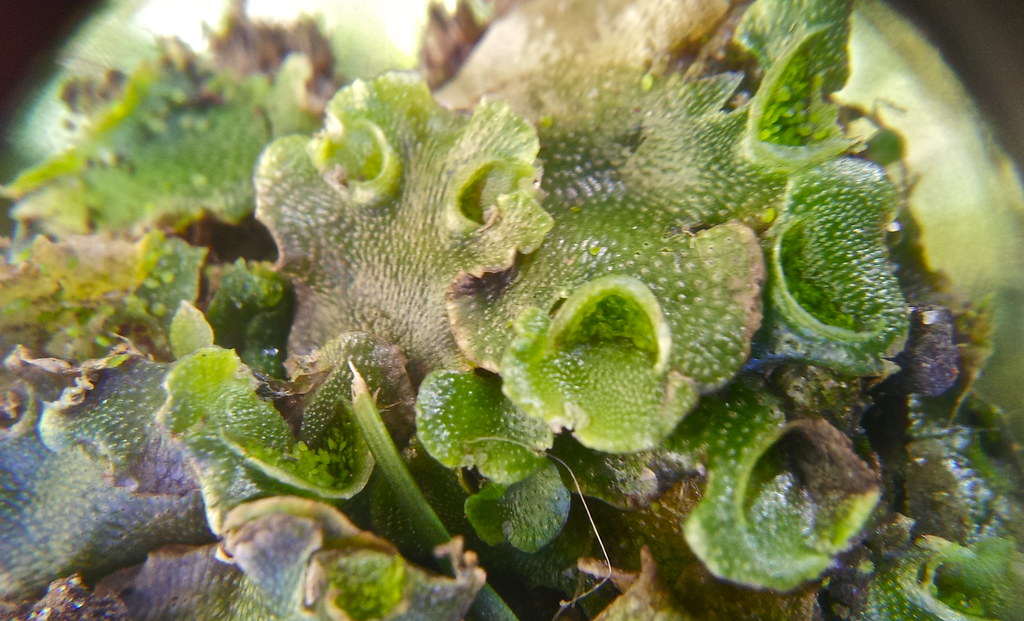
FACT: The thalloid liverwort has distinct-crescent shaped gemmae cups on the surface of the thalli. A rain droplet will splash out gemmae from cups and away from the parent, resulting in asexual reproduction.

Ring Pellia
Pellia neesiana

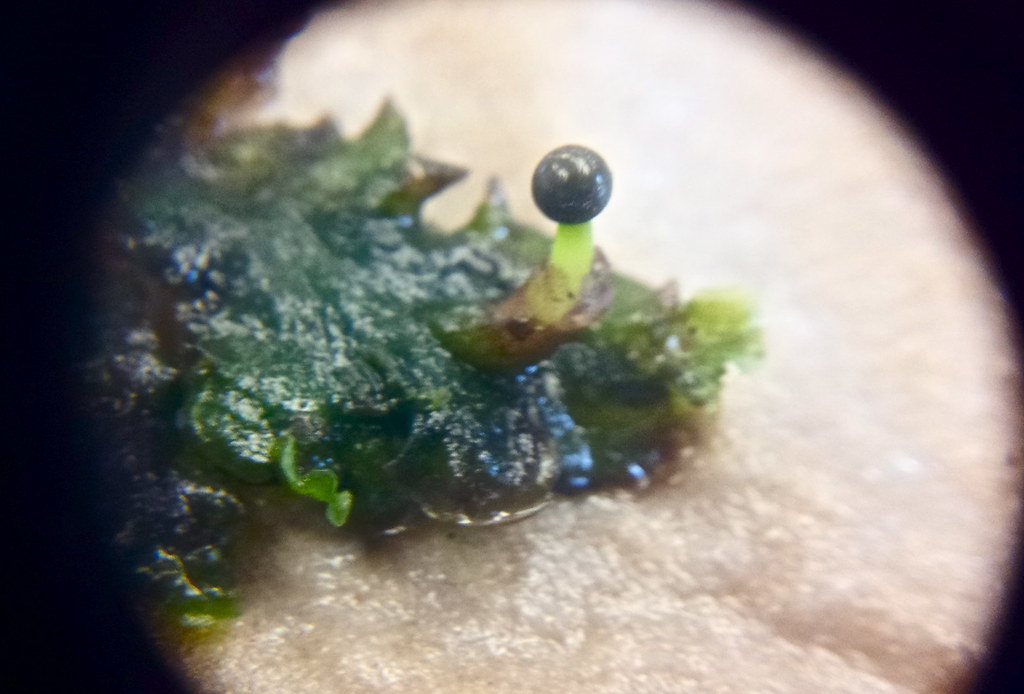
FACT: The middle of the thallus is multistratose and is generally where you can find rhizoids. As you near the unistratose margins, the thallus appears somewhat translucent and the edges are often wavy. The sporangium is rounded, and a shoot calyptra is present.

Naked Stem Liverwort
Bazzania denudata

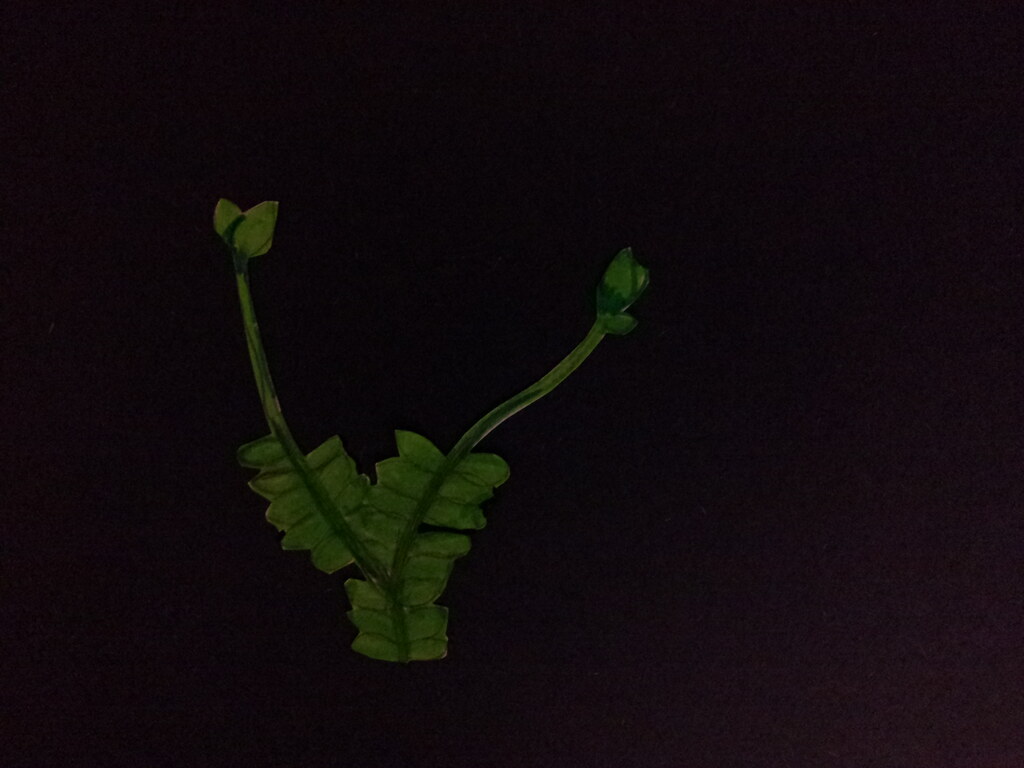
FACT: Able to undergo asexual fragments through their cauducous (easily broken off) leaves, resulting in denuded (naked) stems which is why this genus is called denudata.

Yellow-Ladle Liverwort
Scapania bolanderi

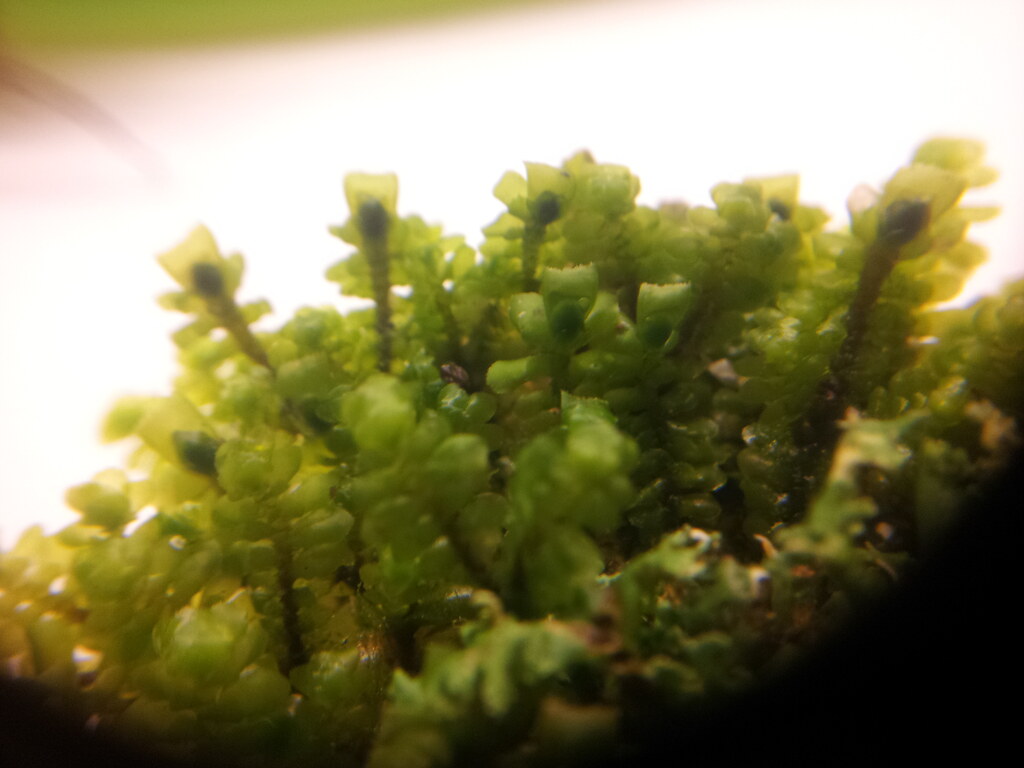
FACT: This leafy liverwort can be found sharing the trunk of a tree with Lepidozia reptans and Hypnum circinale, and forms turfs on the substratum. The lateral leaves are unequally bilobed, with the dorsal lobe being smaller than the ventral, and have toothed margins; underleaves are absent.

Hornwort
Phaeoceros spp.

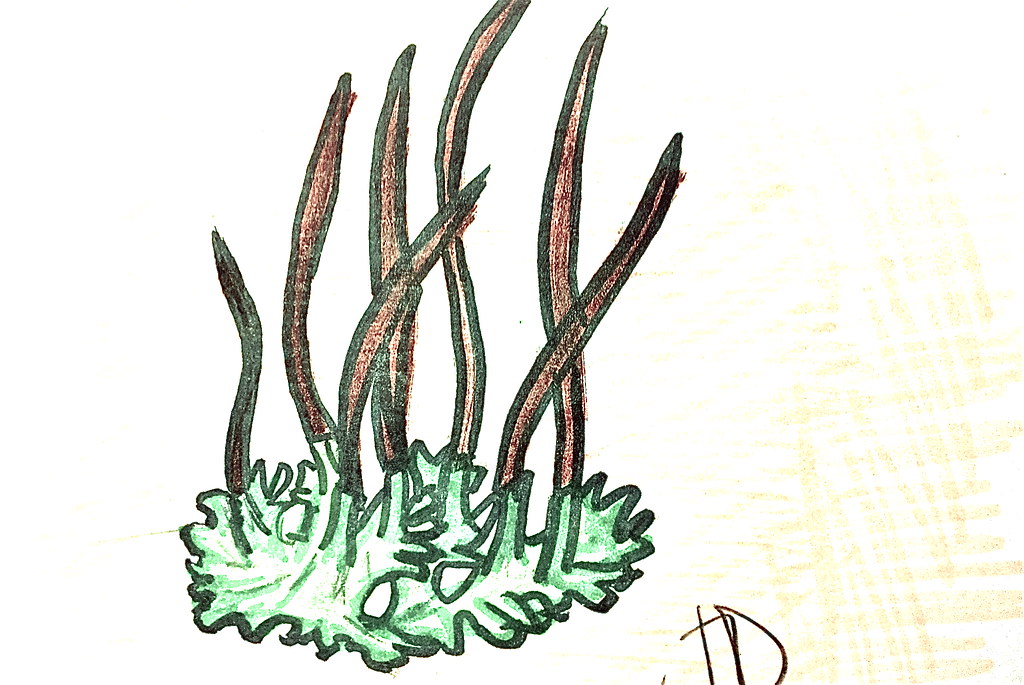
FACT: Like other hornworts, the sporophyte can be seen emerging from the thalloid. Spore dispersal occurs via two lines of dehiscence.

Bifid Crestwort
Lophocolea cuspidata

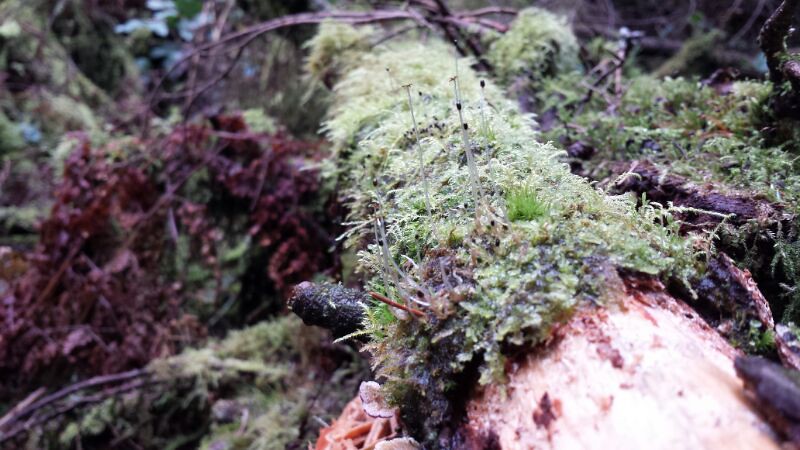
FACT: The lateral leaves of this liverwort are shallowly bilobed and sharply pointed, appearing as devil’s horns. Once a sporophyte emerges from perianth, the sporangium will open via four lines of dehiscence to release spores, a common characteristic in this class of bryophytes.